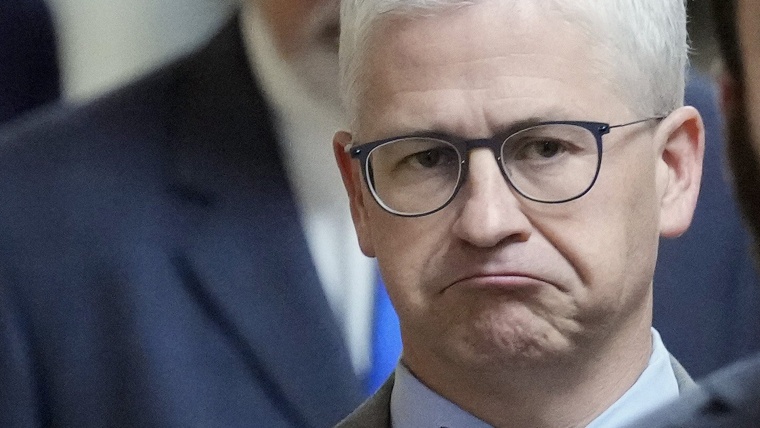Given Donald Trump’s dominance in Republican politics, it’s tempting to think the former president can simply bark orders, share his expectations with Capitol Hill, and wait for GOP lawmakers to obediently follow his instructions. The last several months have offered ample evidence to the contrary.
Trump told Republicans to derail a debt ceiling deal, for example, and much of the party ignored him. The former president similarly told the GOP-led House to shut down the government, and most of the party’s members shrugged off those directions, too.
Nearly three weeks ago, as House Majority Leader Steve Scalise and House Judiciary Committee Chairman Jim Jordan faced off for the Republicans’ nomination for speaker, Trump threw his support behind the far-right Ohioan. Five days later, a majority of GOP members picked Scalise instead.
Once Scalise was pushed aside and Jordan got the party’s nod, the former president declared last week, “Jim Jordan will be a great speaker. I think he’s going to have the votes soon, if not today, over the next day or two.” Three days later, House Republicans stripped Jordan of the party’s nomination.
With a recent track record like this, common sense might suggest that the GOP’s eight candidates for speaker — it was nine, but Dan Meuser of Pennsylvania withdrew from consideration — wouldn’t bother to invest too much time in begging Trump for his backing. And yet, The Hill reported:
Former President Trump spoke to several of the nine candidates for Speaker in recent days ahead of the House GOP’s internal election to nominate a third candidate for the gavel. Trump’s conversations with Speaker candidates included House Majority Whip Tom Emmer (R-Minn.) and Reps. Kevin Hern (R-Okla.), Pete Sessions (R-Texas), Byron Donalds (R-Fla.), and Mike Johnson (R-La.), according to sources who spoke to The Hill and candidates confirming the conversations publicly.
In other words, facing a truncated campaign schedule — announce by Sunday, make a pitch on Monday, vote on Tuesday — most of the Republican candidates had direct interactions with their scandal-plagued former president.
I was especially struck by Sessions’ efforts: The Texan said he believes that “the president is interested in having somebody he can work with, and I think I’m one of those people.”
He neglected to mention that Trump is a former president, and the next speaker need not “work with” the candidate.
Nevertheless, at face value, this outreach might seem pointless. If Trump’s orders are routinely ignored on Capitol Hill, why bother calling and lobbying him?
The answer has everything to do with the nature of the former president’s influence.
While it’s become clear that Trump can’t guarantee 217 floor votes for the GOP’s speaker-designate — just ask Jordan — a lot of the current candidates aren’t looking for him to deliver votes. Rather, they’re looking at this the other way around: They don’t need his support, so much as they need to avoid his opposition. It’s less about getting Trump’s endorsement and more about preventing his veto.
Remember, the underlying arithmetic hasn’t changed: The party’s speaker-designate, once he gets his party’s nod, will head to the floor in search of 217 votes. In a House Republican conference with 221 members, the GOP nominee can lose no more than four votes from his own party.
Can Trump deliver the votes that puts a gavel in the hands of the party’s nominee? Apparently not. But can Trump’s opposition convince five House Republicans to support someone other than the GOP’s choice? That’s a distinct possibility — and it’s a risk the candidates are reluctant to take.
This is of particular relevance to House Majority Whip Tom Emmer — some accounts, the top contender in this latest round of balloting — who has drawn criticisms from Trump and his allies.
After the Minnesota Republican called Trump, a reporter asked the former president whether Emmer could get his backing. “Well, I think he’s my biggest fan now because he called me yesterday and he told me, ‘I’m your biggest fan,’” Trump replied, adding, “I don’t know about that.”
Watch this space.

